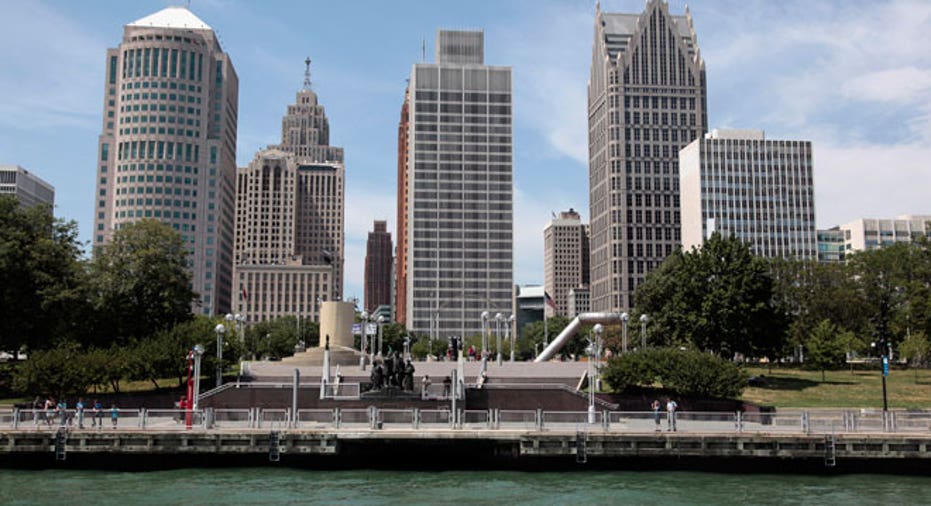Judge Raises Concerns Over Detroit's Future

U.S. Bankruptcy Judge Steven Rhodes asked pointed questions on Friday about how Detroit will fare after it exits its historic bankruptcy, expressing concerns about a commission intended to oversee city finances and a settlement with Syncora Guarantee Inc.
Detroit's state-appointed emergency manager Kevyn Orr, on the witness stand for a third day at the hearing on the city's bankruptcy plan, told Rhodes the presence of the mayor and city council president on the nine-member financial review commission created under Michigan law should not compromise its mission.
"It depends on the ability of the commission and its staff to have access to data and drill down," Orr said.
Rhodes' questions to Orr also dealt with the ability of city officials to implement $1.7 billion of initiatives for restructuring and reinvesting in the city. Orr, who signed orders last week passing over most of his emergency manager powers to Detroit's elected officials, said those officials had already started implementing the initiatives.
Rhodes began the hearing on Sept. 2 to determine whether Detroit's plan to shed about $7 billion of its $18 billion of debt and obligations is fair to creditors and feasible for the city to carry out.
The judge also raised concerns over how the city would monitor deadlines and requirements in a complex settlement with bond insurer Syncora, which had been the city's fiercest opponent in bankruptcy court until it reached a deal with Detroit last month.
"I'm hopeful that the marriage is better than the courtship," Orr said, adding that he did not know if a specific part of city government had been assigned the task of ensuring that Syncora complies with the settlement terms.
Syncora, which has a $400 million exposure related to the city's pension debt, had objected to nearly every move Detroit made in the largest-ever municipal bankruptcy case.
The settlement brought it a financial recovery of 13 percent, and also gave Syncora a larger presence in the city. The company will operate a public parking lot, be able to acquire six vacant lots at no cost, receive a $6 million credit toward purchasing property, and lease the city's side of the Detroit-Windsor tunnel through 2040.
Rhodes asked Orr his views on the opinion, held by one city creditor that has yet to settle, that Detroit should use art works from the Detroit Institute of Arts to pay off some debt.
"Why not monetize the art?" he asked.
Orr said his position on selling art evolved during his 18-month term as emergency manager.
The so-called Grand Bargain that was reached through court-ordered mediation pools money from foundations, the DIA and the state of Michigan to cover city worker pensions without having to sell art.
"For me, that changed my perception of what was reasonable in terms of preserving a city asset," Orr said.
Orr testified earlier this week about taking Detroit to bankruptcy court in July 2013 and how settlements allowed the city to skirt litigation.
Rhodes was briefly overshadowed by Estella Ball, a city retiree and 40-year Detroit resident who is considered an individual creditor.
She peppered Orr with questions about voting rights, the out-of-state companies on his team, and public pension protections under Michigan's constitution that were overruled by the federal court.
Ball then took the stand to blast Orr and Michigan Governor Rick Snyder for usurping her right to elect local people to run Detroit, which has a majority African-American population.
Snyder, who is white, appointed Orr, who is black and lives in the Washington D.C. area.
"This makes Detroit a feudal city under the control of people who don't live here," she said, adding that "laws pushed through the state legislature smack of Jim Crow laws" and have the same effect on "people of color as they did years ago."
Jim Crow laws were passed after the Civil War to establish racial segregation.
(Additional reporting by Lisa Lambert in Washington; editing by Matthew Lewis)



















